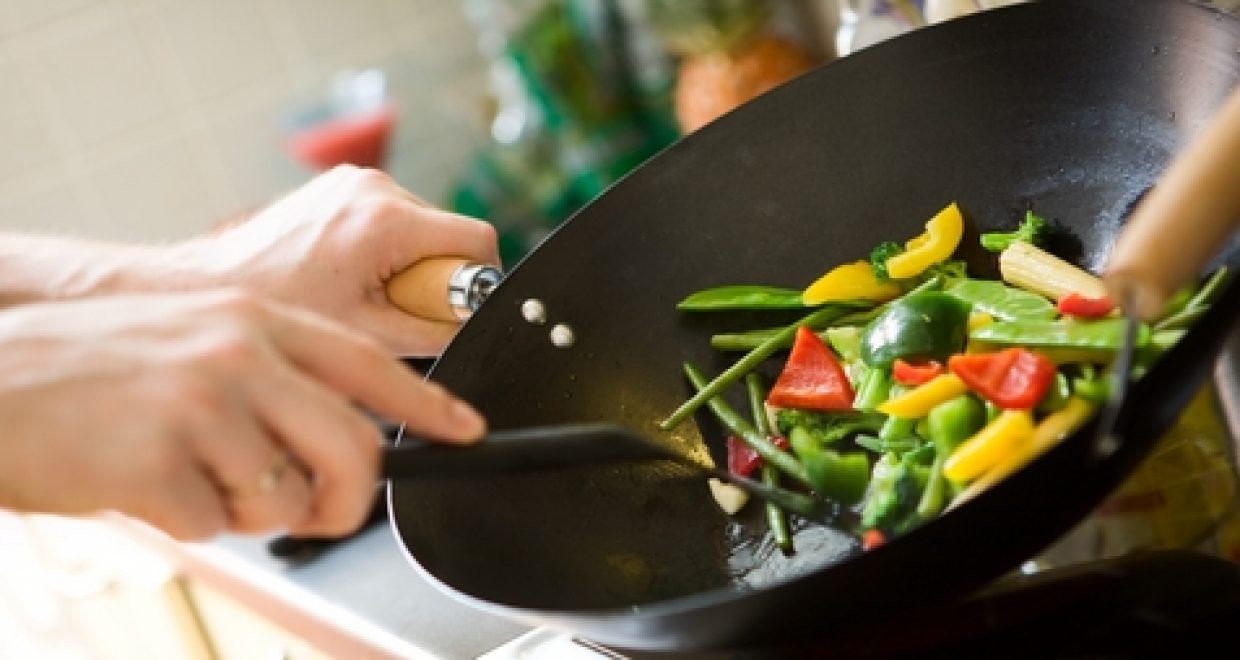Frequent cooking will help you live longer
A new study published in Public Health Nutrition links frequent cooking to a longer life.
In advanced economies, households generally cook less than half of their meals leading to an increased concern among nutrition policy makers that fewer meals are being cooked at home.
Reasons for this are varied and include lack of skills and confidence, little access to basic food commodities, cooking facilities and the availability of commercial alternatives. The food security of some vulnerable groups, like the aged, can be compromised as a result, although programs like Meals-on-Wheels can alleviate the risk.
In the study a team of Taiwanese and Australian researchers looked at the cooking practices of a group of free-living elderly Taiwanese people aged 65 and over.
The researchers found that nearly half (43%) of the study population never cooked; 17% cooked 1–2 times a week; 9% cooked 3–5 times a week and 31% cooked up to 5 times a week.
During the 10 year study, 695 of the participants died and an analysis of the cooking habits of the studies participants revealed that those who cooked more were more likely to still be alive (only 59% of the frequent cooks died). The possibility of other factors, besides cooking, was also extensively investigated, but the aforementioned link still remained.
Those found to be cooking the most (and living the longest) were unmarried women who lived and ate alone, had not been highly educated, were non-drinkers and non-smokers, got around by public transport, walking and cycling, and shopped more than once a week. Along with cooking more frequently, these women also reported enjoying a better, more nutritious diet than others in the study, with diets high in fibre, vitamin C and low in cholesterol.
Women who cooked for a spouse or other family members also lived longer. Men were more likely never to cook or to cook infrequently. They were also more likely to die at a younger age.
This gender difference may have something to do with men’s inability to cook to a similar health advantage as women with regard to food choice aptitude or extent of cooking skill. In a forthcoming accompanying Editorial (Erlich, Wahlqvist and Yngve, Public Health Nutrition 2012 ) the authors note, “One reason why women may benefit most from cooking later in life is that they are cooking for someone else, as they have probably always done: that is, they are cooking with greater purpose than simply preparing meals for themselves”.
Cooking has achieved prominence in the media but has been subject to little scientific enquiry. As the study’s lead author, Prof Mark Wahlqvist, who works in international health and nutrition, observed, “it has become clear that cooking is a healthy behaviour. It deserves a place in life-long education, public health policy, urban planning and household economics. The pathways to health that food provides are not limited to its nutrients or components, but extend to each step in the food chain, from its production, to purchase, preparation and eating, especially with others”.
Public Health Nutrition “Cooking frequency may enhance survival in Taiwanese elderly”
Rosalind Chia-Yu Chen, Meei-Shyuan Lee, Yu-Hung Chang and Mark L Wahlqvist , Public Health Nutrition
This report is available online free of charge for a limited period:
http://journals.cambridge.org/phn/cookin
An interview with Professor Mark Wahlqvist on ABC Radio Australia





